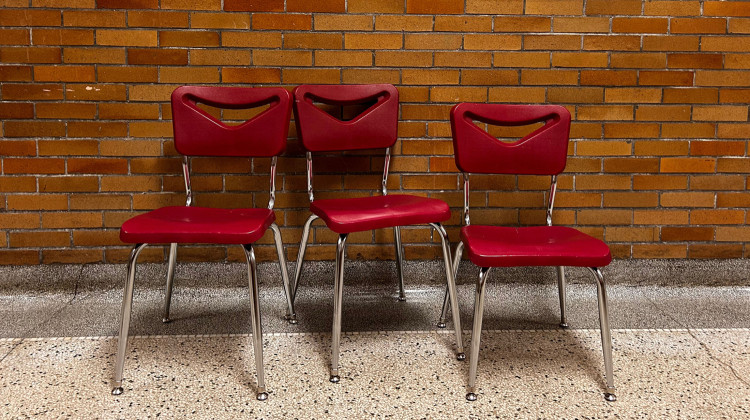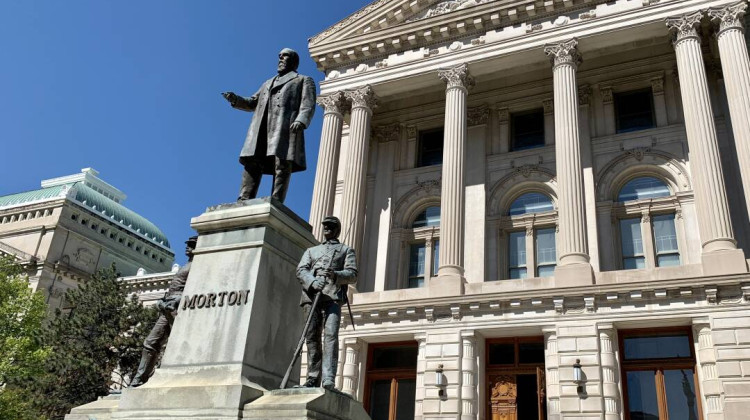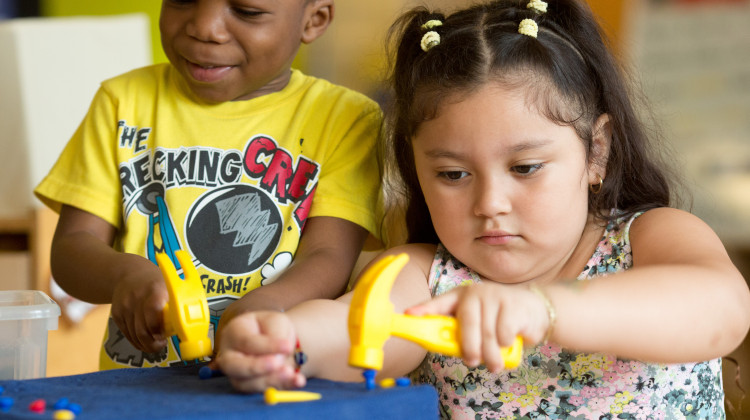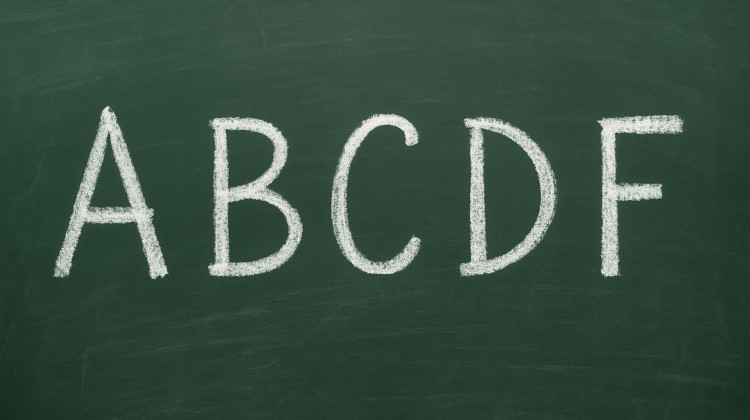
The proposal for cameras in special education classrooms were strongly opposed by organizations that represent school administrators and teachers, mostly due to the cost.
Eric Weddle/WFYIHave a news tip for WFYI's education team? Share it here.
A legislative effort that would have required Indiana schools install cameras in special education classrooms and seclusion rooms fizzled out this week.
Rep. Becky Cash (R-Zionsville), who authored House Bill 1285, stripped the camera requirement from the legislation. She said there wasn’t enough time to get the cost of the cameras — which were going to be covered at least in part by a grant program — into the state budget.
HB 1285 marks the second time Cash has proposed legislation to install cameras in special education classrooms, seclusion rooms and timeout areas. A similar requirement was also struck from a bill last year.
In both instances, Cash said the proposed camera requirement was inspired in part by a 2023 WFYI investigation that found that some schools weren’t accurately reporting how often they physically restrain and seclude students. Seclusion is defined as the confinement of a student alone in an area they cannot leave.
In a House Education Committee meeting earlier this month, Cash said cameras in special education classrooms would also provide better protection for teachers and staff members. A state report released last year found that thousands of Indiana teachers and school employees were injured by students.
“I have personally had multiple former special education teachers and aides call me under anonymity to tell me that they are being scapegoated when things go wrong,” Cash said.
HB 1285 still includes a requirement that every Indiana school building has a staff member available to de-escalate behavior in situations where students may be secluded, restrained or put in timeout.
The bill — as amended — passed out of the House Education Committee 13-0. It now heads to the full House for a vote.
The case against cameras
The cameras were strongly opposed by a slew of organizations that represent school administrators and teachers. Those who testified said the legislation amounted to an “unfunded mandate.”
The initial legislation included the creation of a grant program that would cover the costs of the equipment and the storage of video footage. The Legislative Services Agency estimates the cost to install the cameras ranges from $2,000 to $10,000 per classroom depending on the equipment selected.
“We appreciate the intent of the bill, but given the fiscal influence that we have at this point — without any guarantee of grant dollars — we stand in opposition,” said Bob Taylor, executive director of the Indiana Association of Public School Superintendents, during the committee hearing earlier this month.
Given the prevalence of student-caused injuries to educators, Taylor said cameras in classrooms could be a valuable tool for schools.
“As a husband whose wife was bitten six times in two years in trying to restrain students, it would be good to have that transparency,” he said.
But without funding secured, Taylor said his organization cannot support the camera requirement.
The Indiana Council for Administrators of Special Education issued strong opposition to the legislation on the basis that it could make it harder for schools to hire special education staff if they know they’ll be recorded.
“Currently we have 295 openings in the state of Indiana for special education jobs,” said Jill Lambert, director of student services for Greenwood Community Schools, who testified on behalf of ICASE earlier this month.
“Placing another mandate on them to be recorded over the course of an entire school day is yet another barrier schools will have to overcome during the hiring process,” Lambert said.
Supporters say cameras would protect vulnerable students
But those who testified in support of the legislation say cameras are necessary to protect the wellbeing of the most vulnerable students.
Stephanie Garner, director of parent support and education for Down Syndrome Indiana, said many students with severe disabilities may struggle with verbal communication, which limits their ability to share what happens in the classroom.
“Video surveillance protects all parties involved, students and staff, in situations that require reporting,” Garner said. “The implementation of electronic recording equipment can provide a safeguard to ensure that when allegations are made, there is clear evidence to support the truth,”
Adriana Koch, a teaching assistant who works with students with disabilities, testified in support of the bill because “it ensures special education students receive the safe, supportive and accountable learning environment they deserve.”
“As someone who works in these rooms, I know how crucial it is to have documentation of what happens,” Koch said. “Students with disabilities often struggle to communicate when something is wrong.
Koch also said that, as a job applicant, cameras in special education classrooms would be an attractant — not a deterrent — for her.
Crisis intervention training
Organizations that represent school staff also expressed concern that the legislation would require districts hire behavior interventionists.
But Cash emphasized and amended the bill to to clearly state that schools only need to make sure that someone on staff in each building has received crisis intervention training no later than January 1, 2026.
The bill also requires the Department of Education to recommend crisis intervention training programs to schools.
Other provisions of the legislation bar schools from adopting policies that prevent parents from recording meetings about their child’s special education services, and require districts provide parents of students who die the opportunity to collect their belongings from schools.
Contact WFYI investigative education reporter Lee V. Gaines at lgaines@wfyi.org. You can follow her on Bluesky.
 DONATE
DONATE






 Support WFYI. We can't do it without you.
Support WFYI. We can't do it without you.